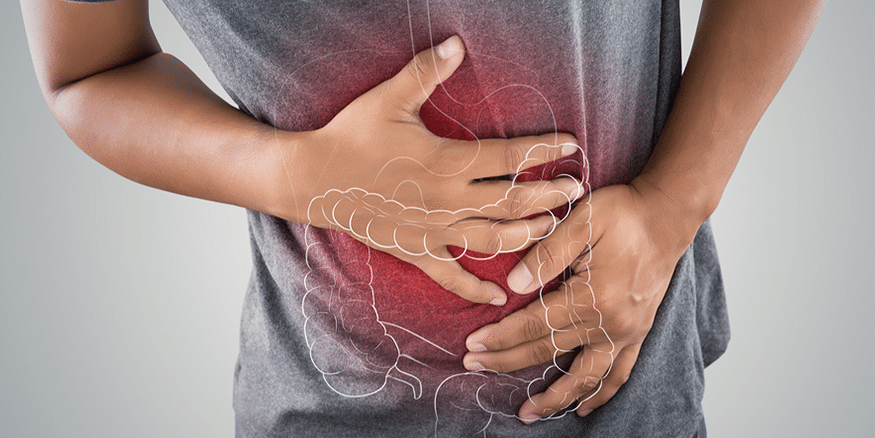Constipation
Contact
101- A, First Floor, Town Square, Above Dorabjee’s,B/H Symbiosis Law School, VIP Airport Road, Viman Nagar, Pune, Maharashtra 411014

This article will provide a comprehensive overview of constipation, including its causes, symptoms, prevention strategies, and treatment options to help you manage this condition effectively.
What Is Constipation?
Common Signs of Constipation:
Infrequent bowel movements (less than three per week).
Straining during bowel movements.
Feeling of incomplete evacuation after a bowel movement.
Hard, dry, or lumpy stools.
Abdominal discomfort or bloating.
Causes of Constipation
Several factors contribute to constipation. These may include:
1. Dietary Factors:
- Low Fiber Intake: A diet low in fiber can slow down the movement of waste through the digestive tract.
- Dehydration: Inadequate water intake can result in hard, dry stools that are difficult to pass.
- Excessive Dairy or Processed Foods: High-fat, low-fiber foods can contribute to constipation.
2. Lifestyle Factors:
- Sedentary Lifestyle: Lack of physical activity can slow bowel movement.
- Ignoring the Urge to Go: Delaying bowel movements when the urge arises can result in constipation.
- Changes in Routine: Traveling or changes in daily habits can disrupt normal bowel patterns.
3. Medications:
- Certain medications, including painkillers, antacids, antidepressants, and iron supplements, can lead to constipation as a side effect.
4. Medical Conditions:
- Irritable Bowel Syndrome (IBS): A common digestive disorder that can cause alternating bouts of constipation and diarrhea.
- Hypothyroidism: Low thyroid hormone levels can slow down the body’s metabolism, including digestion.
- Diabetes: Poorly managed diabetes can affect the nerves controlling the digestive system.
- Neurological Disorders: Conditions like Parkinson’s disease or multiple sclerosis can affect the nerves that control bowel movements.
5. Pregnancy:
- Hormonal changes during pregnancy can slow bowel movement, and the growing uterus can place pressure on the intestines.
Diagnosis of Constipation
Most cases of constipation can be diagnosed based on a detailed history and physical examination. Your doctor may ask about your diet, lifestyle, and medication use. In some cases, additional tests or procedures may be necessary, including:
- Blood Tests: To check for thyroid problems or other conditions.
- Colonoscopy: To rule out blockages or diseases like colorectal cancer, especially if the constipation is severe or has persisted for a long time.
- X-rays or Imaging Tests: In some cases, your doctor may use imaging techniques to look for bowel blockages or other abnormalities.
- Anorectal Manometry: A test that measures how well your rectum and anus are functioning.
Treatment for Constipation
The treatment of constipation largely depends on the underlying cause. For most people, lifestyle changes and simple remedies can alleviate symptoms. If constipation persists, medical intervention may be required.
1. Dietary Changes:
- Increase Fiber Intake: A high-fiber diet can soften stool and help it move more easily through the digestive system. Foods rich in fiber include fruits, vegetables, whole grains, and legumes.
- Stay Hydrated: Drinking plenty of water is essential for softening stool and preventing dehydration-related constipation.
- Limit Processed Foods: Reducing intake of processed foods, which are often low in fiber, can help maintain regular bowel movements.
2. Physical Activity:
- Exercise Regularly: Physical activity helps stimulate the muscles in the intestines, promoting regular bowel movements. Even simple activities like walking or yoga can help.
3. Over-the-Counter Laxatives:
- Bulk-Forming Laxatives: These work by absorbing water into the stool, making it easier to pass (e.g., psyllium).
- Stimulant Laxatives: These stimulate the muscles in the intestines to move stool along (e.g., bisacodyl, senna).
- Osmotic Laxatives: These help draw water into the colon, softening the stool (e.g., polyethylene glycol).
- Stool Softeners: These add moisture to the stool, making it easier to pass (e.g., docusate sodium).
4. Prescription Medications:
- If over-the-counter treatments don’t provide relief, your doctor may prescribe stronger medications, such as lubiprostone, linaclotide, or prucalopride.
5. Biofeedback Therapy:
- For chronic constipation due to pelvic floor dysfunction, biofeedback therapy can help retrain the muscles involved in bowel movements.
6. Surgical Intervention:
- In rare cases, surgery may be required for severe constipation that doesn’t respond to other treatments. This may involve procedures to remove blockages or strengthen the muscles in the rectum.
